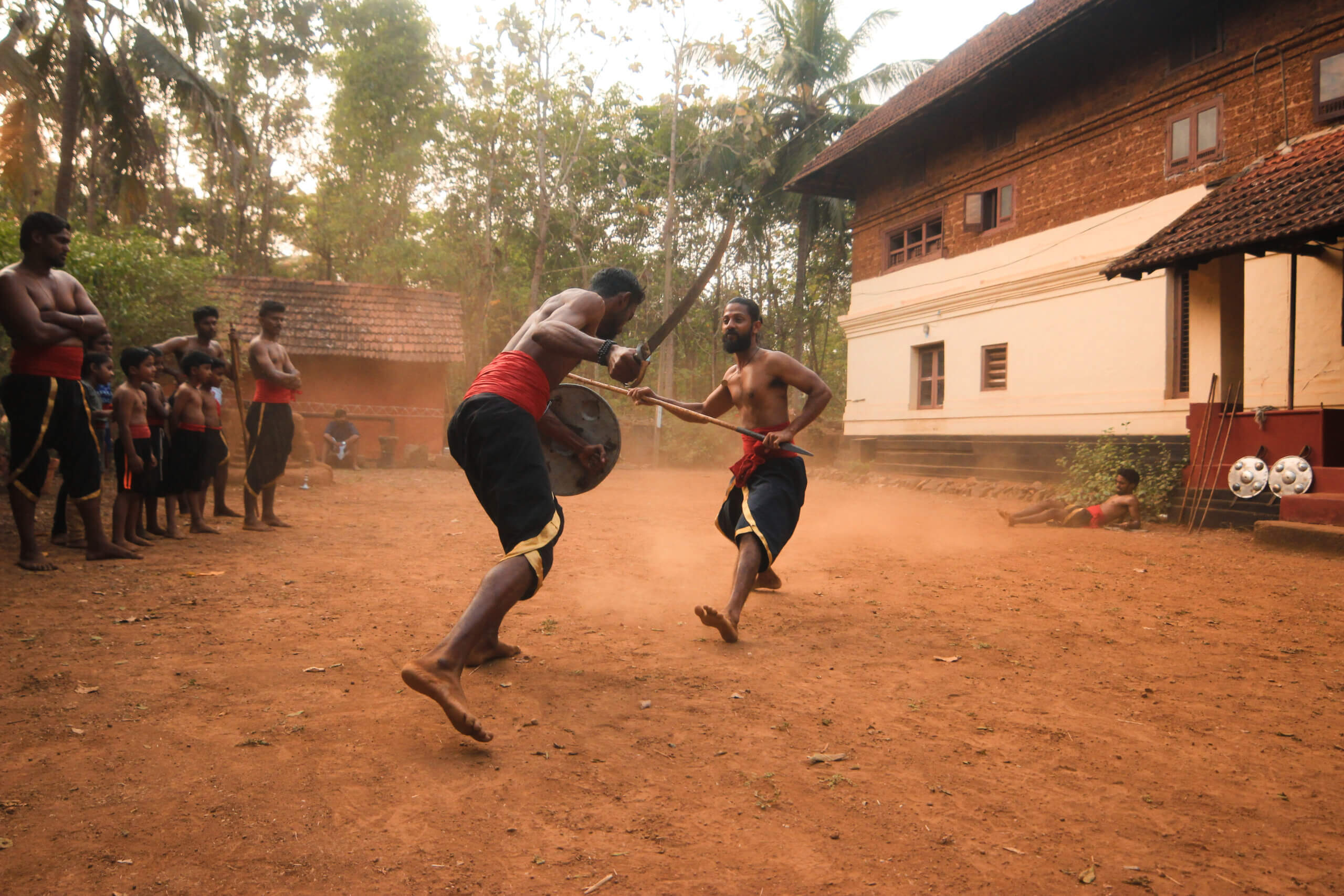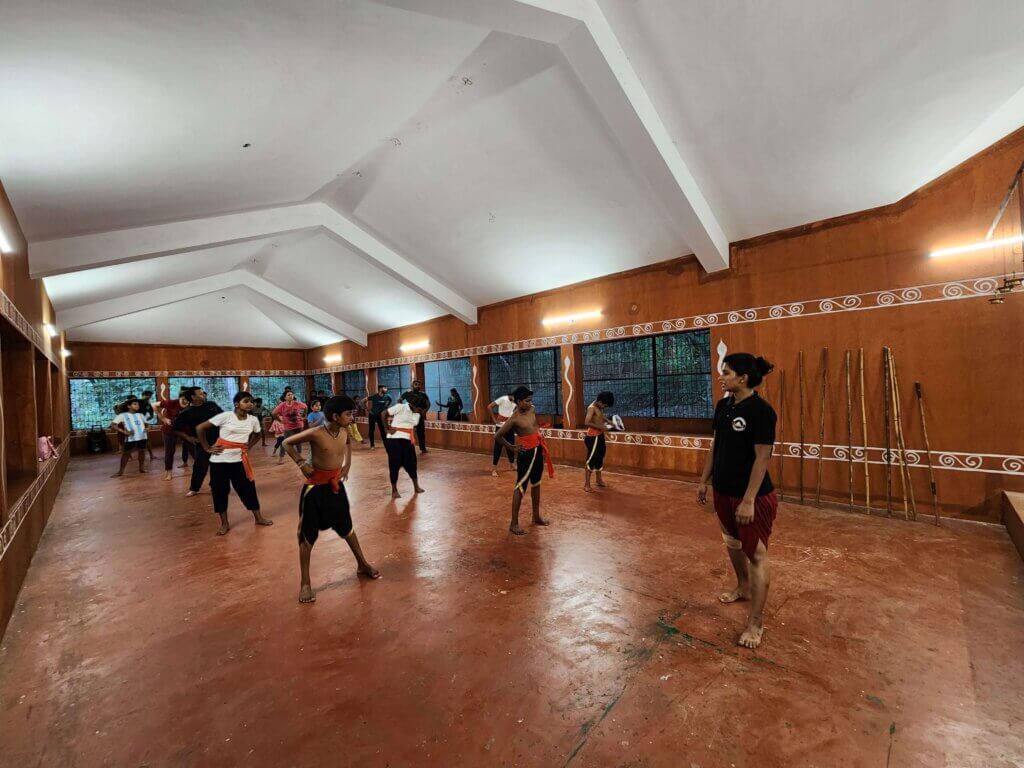In today’s fast-paced world, mental health is just as important as physical health. Traditional practices like Kalaripayattu, one of the oldest martial arts in the world, offer a unique blend of physical, mental, and spiritual development. While it is widely recognized for its impressive physical benefits, Kalaripayattu also has a profound impact on mental well-being, providing practitioners with a holistic approach to maintaining a balanced mind and body.
Mind-Body Harmony
Kalaripayattu is more than just a martial art; it’s a practice of mindful movement. Each technique in this ancient form requires intense focus and control over the body. As practitioners learn to synchronize breath, movement, and awareness, they develop a deeper connection between mind and body. This enhanced awareness fosters mindfulness, which helps reduce anxiety and keeps practitioners grounded in the present moment.
Stress Relief through Physical Exertion
One of the most direct mental health benefits of Kalaripayattu comes from its physical intensity. Engaging in rigorous training releases endorphins, the body’s natural mood enhancers. This process helps reduce stress and elevates mood, providing a sense of relief and relaxation. In an era where stress-related mental health issues are on the rise, the physical exertion of Kalaripayattu serves as a natural stress reliever.
Building Mental Discipline and Focus
Mastering the intricate moves of Kalaripayattu requires immense concentration and discipline. Regular practice sharpens mental focus, helping practitioners stay present and clear-headed. Over time, this mental discipline extends beyond the training ground, improving productivity, decision-making, and the ability to manage distractions in daily life.
Emotional Resilience
Kalaripayattu involves intense training that challenges not only the body but also the mind. By facing and overcoming physical challenges, practitioners develop emotional resilience. The discipline teaches individuals to stay calm under pressure, manage frustration, and push through discomfort—skills that translate into better emotional regulation in everyday situations.
Confidence and Self-Esteem
As practitioners progress in Kalaripayattu, they experience physical growth, mastering complex movements and techniques. This sense of achievement fosters self-confidence and a positive self-image. The discipline and commitment required in training build a sense of self-worth, helping practitioners tackle life’s challenges with greater assurance.
A sense of community
Kalaripayattu is often practiced in a communal setting, such as the traditional Gurukulam system, where students train under the guidance of a guru. This sense of community creates strong bonds between the teacher and students, fostering mutual respect and support. Being part of a like-minded community helps reduce feelings of isolation, providing an essential support system for mental health.
Meditative Practices and Mindfulness
Many Kalaripayattu schools incorporate meditative elements and breathing exercises (pranayama) into training. These practices encourage mindfulness, helping practitioners remain calm and centered, even during physically demanding exercises. Mindfulness techniques reduce symptoms of anxiety and depression by promoting relaxation and emotional balance.
Overcoming Fear and Aggression
Kalaripayattu teaches individuals how to confront their fears and manage aggression in a controlled and respectful environment. Through rigorous training, practitioners learn to channel their inner energy (prana) and transform it into constructive force. This practice helps diminish fear, enhance emotional stability, and create a greater sense of self-control.
Conclusion
Kalaripayattu offers a complete mind-body workout that goes beyond physical conditioning. Its emphasis on mental focus, emotional resilience, and community engagement provides a holistic framework for maintaining mental health. Whether you’re looking to relieve stress, improve emotional regulation, or build confidence, Kalaripayattu can serve as a powerful tool for fostering mental well-being.
By committing to regular practice, practitioners unlock not only the physical benefits but also the profound mental health advantages that come with this ancient martial art. As a path toward mindfulness, inner strength, and emotional balance, Kalaripayattu is a timeless practice that enhances overall well-being.
FAQs
Q: How does Kalaripayattu benefit mental health?
A: Kalaripayattu enhances mental health by promoting mindfulness, reducing stress through physical exertion, and improving emotional regulation. The discipline required helps sharpen focus and build mental resilience, while the sense of community in training provides emotional support and connection.
Q: Can Kalaripayattu help reduce anxiety and stress?
A: Yes, the physical activity involved in Kalaripayattu releases endorphins, which are natural mood boosters that help reduce stress and anxiety. The focus on breathing, mindfulness, and body awareness also helps calm the mind and bring practitioners into the present moment, minimizing anxious thoughts.
Q: Does Kalaripayattu require prior experience in martial arts?
A: No, Kalaripayattu is accessible to beginners and experienced martial artists alike. While it is a complex and demanding art form, anyone can start practicing and gradually build their skills. The mental health benefits begin to take effect even at the beginner level through regular practice.
Q: How does Kalaripayattu improve focus and concentration?
A: Kalaripayattu demands total mental and physical engagement, which trains the brain to concentrate deeply on each movement. Over time, this intense focus becomes a mental habit, leading to improved concentration in other areas of life such as work or studies.
Q: Can Kalaripayattu help with emotional regulation?
A: Yes, Kalaripayattu teaches practitioners to face challenges, stay calm under pressure, and manage emotions like fear and frustration. Through controlled movements, meditation, and breathing exercises, practitioners develop emotional resilience and better manage stress and negative emotions.
Q: Is Kalaripayattu suitable for individuals with depression?
A: While Kalaripayattu is not a replacement for professional treatment, it can be a beneficial complement to mental health care. The physical activity, sense of achievement, community support, and mindfulness practices can help improve mood, reduce depressive symptoms, and boost self-esteem.
Q: How long does it take to experience mental health benefits from Kalaripayattu?
A: Many practitioners begin to notice improvements in their mood and mental clarity within a few weeks of consistent practice. Long-term benefits, such as enhanced focus, emotional regulation, and reduced stress, typically develop over several months of dedicated training.
Q: Does Kalaripayattu incorporate meditation or mindfulness techniques?
A: Yes, Kalaripayattu often includes pranayama (breathing exercises) and meditative practices that promote mindfulness. These techniques help calm the mind, enhance mental clarity, and reduce symptoms of anxiety and stress.
Q: Can Kalaripayattu help with sleep problems?
A: The physical exertion combined with mental relaxation techniques in Kalaripayattu can help improve sleep quality. Regular practice helps reduce stress and anxiety, which are common causes of insomnia, leading to more restful and restorative sleep.





